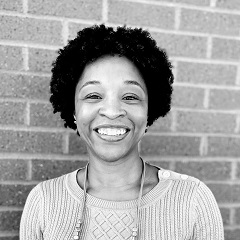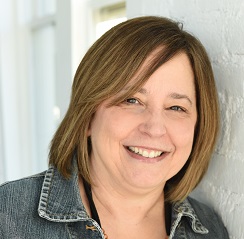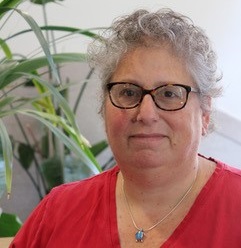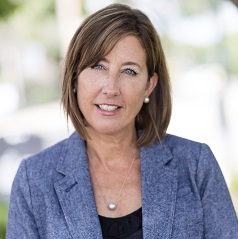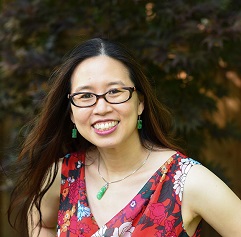Overview
In-person 4-Day/3-Night Retreat
Professional & Personal Development for Educators, Librarians, Storytellers, & Publishing Professionals. Build the skills you need to analyze children’s books for meaningful representation, reader engagement, visual literacy, and more.
- This is an in-person workshop at our Retreat Center with presentations, implementation plans, book talks, and time to meet informally with fellow literary advocates and activists.
- Lodging and meals are included.
- Begins at with dinner 5:30pm Eastern on Sunday, June 4
- Ends with lunch at 12:00pm-1:00pm Eastern on Wednesday, June 7
- 20 participants max
Why This Workshop?
Reading, discussing, and analyzing children’s books makes for better children’s books.
Whether you are critically reading as an educator, writer, illustrator, editor, agent, book seller, or publisher, this important work must be done thoughtfully and with an intersectional lens.
Join children’s book educators, researchers, scholars, and storytellers Dr. Laura M. Jiménez, Franki Sibberson, Clare Landrigan, Lynsey Burkins, and Grace Lin for a professional development workshop to:
- Build skills for meaningful representation, reader engagement, and visual literacy,
- Amplify stories that reflect and embrace the diversity of children’s literature,
- Combat inaccuracies and myths as related to book censorship and bans in today’s communities and classrooms, and
- Learn, reflect, and share your discoveries with the group.
“If we believe in intersectionality, I think it’s really important that we don’t rely on a single book or a single story. It’s a set of books and layering of books that really makes sure that we tell the whole story and give our kids lots and lots of representation.” (Franki Sibberson)
This course gives not just the WHY, but also the HOW to choose/edit/write these books.
Feedback Expected
- No feedback is expected for writers or illustrators. As part of our Essential Conversation series of programming, the purpose of this event is to grow as professionals & creatives in the children’s book industry through important discourse and learning.
It’s a Great Fit If…
- You are, or need to be, an ally, co-conspirator, or abolitionist in the fight for representation in children’s books. Join us to learn more and spread the word in all children’s lit spaces.
- You’re a classroom teacher, literacy leader, or you are teaching teachers. Reading, discussing, and analyzing children’s books is an essential skill for teachers at all levels.
- You’re a writer and/or illustrator of books for children. This course is especially geared toward stories in the elementary grades, but is applicable for all storytellers.
- You’re a librarian, or building a library…not with hammers and wood, but with BOOKS! Whether it is a personal library, public library, classroom library, school library, Little Free Library, and/or book collection for profit, this course will guide you to a more equitable and inclusive approach to gather books for children.
- You work in the publishing industry. Editors, agents, and publishing professionals will deepen their understanding of these essential conversations in the industry.
Reasons “Why” From Past Attendees:
- “As a writer and book coach I’d like to be more aware of my blind spots and biases…”
- “I want to continue to fill my library space with books that get students thinking beyond themselves.”
- “I hope to gain valuable knowledge to bring back to my staff and district librarians.”
- “I look forward to delving into how my colleagues and I can be more mindful of intersectionality in the acquisitions and editing process.”
- “I want to be a better ally and promoter of literature from diverse sources.”
- “I am actively working to assess my collection and to help my colleagues do the same.”
- “Improve my critical reading skills and comprehension of current social issues in order to enhance my own creative work and conversations.”
- “My goal for this program is to fine tune how I look and select books to use with students.”
- “As someone training to become an editor, I want to learn how to be an ally to marginalized writers and their stories… and learn what the industry can do to help empower more diverse stories.”
- “I want to increase my knowledge, awareness, and skill in creating and using a variety of texts for my students and my readers.”
Detailed Agenda
All Times are Eastern Standard Time.
Pre-Workshop
- Approximately two weeks before the retreat, you will receive a link to our virtual classroom where you can introduce yourself to fellow attendees and engage in Highlights Foundation related resources (including our Community Standards).
- You should complete the required reading for the workshop. See the list at the bottom of this page. Participants are not required to purchase all texts for readings. Instead, you are encouraged to use your local library.
Pre-Workshop Required Reading
Scholarship to read prior to the workshop:
- Kimberlé Crenshaw: The Urgency of Intersectionality
- Laura M. Jiménez: The Overwhelmingly White, Straight, and Able Face of Children’s Literature. 2019, Michigan Reading Journal, 51(1), 9.
- Laura M. Jiménez: Mirrors and windows with Texts and readers: Intersectional Social Justice at work in the Classroom,. 2021, Language Arts, 98(3), 156-161.
- “Frog and Toad”: An Amphibious Celebration of Same-Sex Love by Colin Stokes in The New Yorker, May 31, 2016
- Hee Young Kim and Angelica Serrano: Enhancing Critical Visual Literacy through Illustrations in a Picture Book
- Lynsey Burkins: Incidental Diversity (A Bring Me a Book Toolkit)
Picture books to read prior to workshop:
- Your Mama by NoNieqa Ramos and illustrated by Jacqueline Alcántara
- A Big MoonCake for Little Star by Grace Lin
- Fearless Heart: An Illustrated Biography of Surya Bonaly by Surya Bonaly and Frank Murphy, illustrated by Anastasia Magloire Williams
- In the Spirit of a Dream: 13 Stories of American Immigrants of Color told in poems by Aida Salazar and feature artwork by Alina Chau, Gaby D’Alessandro, Jose Ramirez, Ken Daley, and more
- What I Am, by Divya Srinivasan
Day 1: Sunday, June 4
- 3pm – 5pm Eastern: Arrival and check-in
- 5:30pm: Appetizers & Dinner
- Following dinner: Welcome, introductions, and setting up affinity groups
Day 2: Monday, June 5
Morning:
- Breakfast
- Read aloud
- Centering the Story: Who is Represented, Who is Not
- Book discussion groups facilitated by presenters
- Participant time for personal response and reflection
Afternoon:
- Lunch
- Disrupting Nostalgia in Children’s Literature for the Classroom
- Small Group Discussions facilitated by presenters
- Participant time for personal response and reflection
Evening:
- Appetizers & Dinner
- After Dinner presentation
- Small Group Discussions in affinity spaces
Day 3: Tuesday, June 6
-
Morning:
- Breakfast
- Literature is a Liberatory Experience! & Incidental Representation: What it Means & What it Does
- Small discussion groups facilitated by presenters
- Participant time for personal response and reflection
Afternoon:
- Lunch
- Critical Visual Literacies: Interpreting and Analyzing Complex Texts
- Small discussion groups facilitated by presenters in affinity groups
- Participant time for personal response and reflection
Evening:
- Appetizers & Dinner
- After Dinner: Conversation on Cultural Tourism and Cultural Appropriation
- Sharing reflections by participants
Day 4: Wednesday, June 7
Morning
- Breakfast
- Pulling it all together: Implications for the Classroom and Beyond
- Open Q&A
Afternoon
- Lunch and farewells
Commitment Required for the Best Experience
As an in-person event at our Retreat Center, you’ll have a chance to step away from everyday life to immerse yourself in this learning. We build in breaks and independent time so you have space for your personal needs. While we encourage participation in all group events, we know that as an adult learner you can decide if you need more time to yourself. Please let someone from our staff or faculty know if you plan to step away from group activities.
Another commitment that will help you get the most from this workshop is the required reading list. Participants are not required to purchase all texts for readings. Instead, you are encouraged to use your local library.
How It Impacts Kids
Educators, librarians, storytellers, publishing professionals: we’re all people who get books into kids’ hands. Books impact their lives directly, and help shape their world view. As a result, we have a responsibility to ensure meaningful representation that serves all kids.
Testimonials from Our Community
“The sessions on visual literacy were really enlightening for me as a picture book editor and gave me a framework I will be using when looking at published books as well as in thinking through sketches and final art for the books we make.”
“This workshop gave me a deeper understanding of all the things I knew but could not explain to others. The first thing that cracked my brain wide open was finally understanding about naming EVERYTHING was the way to remove normative assumptions. Then, the idea of “flooding” with texts and text sets–which I will take on (more so than I always have) when using mentor texts in workshops.”
“I’m still reading–every one of their talks and readings and links sent me on to more things to learn and study. And it will take a long time–a lifetime?–to digest everything I’ve learned. But, I realize that is the intent, so I am happy for it all.”
“I have a specific trans girl who has been coming to the library her entire life and until she was able to be her true self, she was incredibly shy and quiet. I often would ask for her input on books and programs, but she kept to herself. Once I began my diversity audit and making sure we had robust intersectional representation, she came to me directly and thanked me for buying these books, that they made her feel seen and valued. Now, she regularly discusses books with me and which books she feels have good trans representation. It felt wonderful to have such a positive impact on a teen that I know has been struggling for a long time.”
“I had a wonderful, growing, challenging, experience. I say challenging because a lot of what was discussed was eye opening to me. That was not bad, just necessary. At times I felt overwhelmed, but reflecting on it several days later, I intend to learn more, so I can do better and expand my knowledge base. The most positive piece for me personally was the opportunity to grow and the information I can take back to my school community. I can begin, even if it is just bit by bit, to build in more inclusive practices in my book choices and the materials I share with students.”
“[Faculty were] fabulous, knowledgeable, able to have hard conversations and discuss challenging topics. So well versed in their area of expertise. Exposure to new authors pushed me to think outside my very narrow view and knowledge of kidlit.”
“I really appreciated our last day session on how to take what we learned back to our organization and community. I loved the way everyone helped each person think through issues that were troubling them.”

